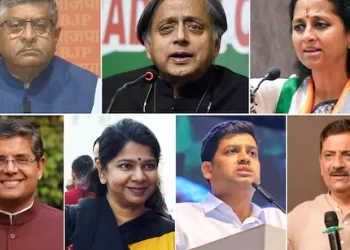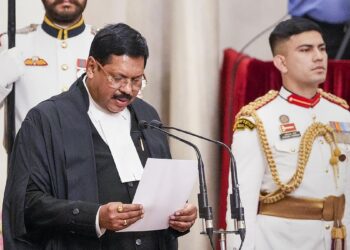On Wednesday, three months after the Sheikh Hasina government was deposed in a violent insurrection, Indian Army Chief Upendra Dwivedi interacted virtually with his Bangladeshi counterpart General Waker-Uz-Zaman. This is the first interaction between the two countries’ Army leaders since the August 5 political crisis that led Hasina to escape Bangladesh.
According to an Indian Army statement, Dwivedi “interacted with General Waker-Uz-Zaman, Chief of Army Staff, Bangladesh Army, on video tele call”. According to the Army statement, the two “exchanged views on issues of mutual interest, including bilateral defence cooperation”.
The effort is significant in light of concerns that, despite the country’s political turmoil, Pakistan and China are striving to strengthen their influence in Bangladesh. Under the Hasina regime, New Delhi and Dhaka have maintained tight ties and expanded collaboration on a variety of fronts, including defense and internal security.
While the two nations’ armed forces have historically maintained cordial connections due to the Indian Army’s assistance in Bangladesh’s liberation, defense ties are considered to have strengthened during the Hasina rule. Over the years, the two nations have established a broad foundation of strategic cooperation through regular visits, joint training exercises, and the delivery of military hardware from India to Bangladesh.
Zaman is known to have solid contacts with India’s military establishment. Keeping military-to-military contact with the Bangladesh Army, as well as diplomatic channels open, is critical given that the country is in the midst of a political transition in which the military is playing an important role in not only ensuring the nation’s security but also maintaining law and order for a smooth handover of power.
The gathering takes place against the backdrop of reports of attacks on members of the Hindu community in Bangladesh. Bangladesh’s interim government has promised India that it will take all necessary efforts to protect the safety of the country’s minorities. The Bangladesh Army may play a vital role in maintaining order on that front.
India and Bangladesh also share an over-4,000 km-long border that is porous and prone to narcotics, cattle, and guns smuggling, as well as illegal immigration. In the midst of upheaval in Bangladesh, India fears that such actions would increase on its borders.
The biennial meeting between the two countries’ border protecting personnel, which was meant to take place this month, has already been postponed. Such sessions have been critical for expressing shared concerns and strengthening collaboration in the prevention of transnational crimes.
Source:IE







 Finance
Finance







